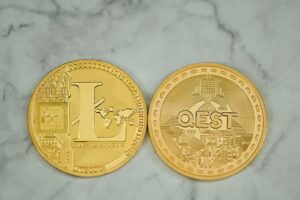Understanding the Relationship Between Forex Interest Rates and Inflation
The foreign exchange market, also known as forex, is the largest and most liquid financial market in the world. Traders engage in forex trading to speculate on the price movements of different currencies. One crucial factor that influences these price movements is the interest rates set by central banks. In this article, we will explore the relationship between forex interest rates and inflation and how they affect the forex market.
Interest rates play a significant role in determining the value of a currency. When a central bank raises interest rates, it attracts foreign investors who seek higher returns on their investments. This increased demand for the currency drives up its value in the forex market. Conversely, when a central bank lowers interest rates, it discourages foreign investors, leading to a decrease in the currency’s value.
The relationship between interest rates and inflation is complex. Inflation refers to the general increase in prices of goods and services in an economy over time. When inflation is high, the purchasing power of a currency decreases. Central banks use interest rates as a tool to control inflation. By increasing interest rates, central banks aim to slow down economic growth and reduce inflationary pressures. Conversely, when inflation is low, central banks may lower interest rates to stimulate economic activity.
Inflation and interest rates have a direct impact on forex trading. Higher interest rates attract foreign investors, leading to an increase in demand for the currency. This increased demand strengthens the currency’s value in the forex market. Conversely, lower interest rates discourage foreign investors, leading to a decrease in demand for the currency and a subsequent depreciation.
Inflation also affects forex trading. When a country experiences high inflation, its currency loses value as it erodes the purchasing power of its citizens. Foreign investors are less likely to invest in a currency that is losing value due to inflation. This lack of demand results in a depreciation of the currency in the forex market. On the other hand, if a country has low inflation, its currency is perceived as more stable and attractive to foreign investors, leading to an increase in demand and appreciation in the forex market.
The relationship between forex interest rates and inflation is not always straightforward. In some cases, central banks may raise interest rates to combat inflation, but it may not have the desired effect. This could be due to other factors impacting inflation, such as supply shocks or government policies. In these situations, forex traders need to carefully analyze the overall economic environment and consider these factors alongside interest rates to make informed trading decisions.
It is essential for forex traders to stay updated on central bank announcements regarding interest rates. Central banks often provide forward guidance on their monetary policy, giving traders insights into future interest rate changes. By anticipating interest rate movements, traders can position themselves to take advantage of potential currency value fluctuations.
In conclusion, the relationship between forex interest rates and inflation is crucial to understand for successful forex trading. Interest rates set by central banks impact the value of a currency in the forex market. Higher interest rates attract foreign investors, leading to currency appreciation, while lower interest rates discourage foreign investors, resulting in currency depreciation. Inflation also affects forex trading, as high inflation erodes the value of a currency and reduces foreign investor demand. Traders must consider both interest rates and inflation levels to make informed decisions in the forex market.






